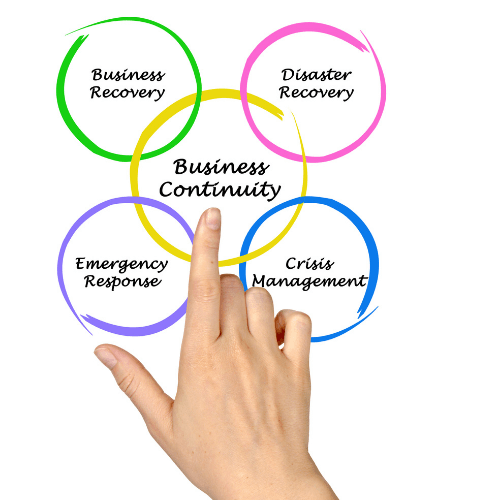
How to Reduce Risk with Business Continuity Planning
If the past year has taught us anything, it is that change is inevitable. Whilst it is impossible to predict a global pandemic, contingency planning can aid response and recovery.
“Failing to prepare is preparing to fail.” – Benjamin Franklin
Business Continuity Planning
As we approach a year since the first lockdown was declared, it is an opportune time for reflection, evaluation and future planning. What successes and opportunities has your company realised and where has it faltered? How can this learning be used to inform strategic business planning?
What’s this got to do with marketing you might ask? Good marketing is about working with the whole business, understanding the challenges and presenting the business as a brand rather than a company. Good commercial sense is invaluable in the sphere of marketing, and planning for every eventuality will have a positive impact on the customer journey.
What are the Benefits of Continuity Planning?
Darwin’s Theory of Evolution identified the ability to adapt as critical for survival. This applies as much for your business as it does to us as a species. Planning allows a business to be proactive rather than reactive and ensures the right decisions are made at a time of crisis.
Preparing a Business Continuity Plan will:
- Help your team to identify and mitigate risks
- Provide clear actions to support a quick and appropriate response to disruption
- Minimise the impact of disruption for the organisation, employees and clients
- Maintain your reputation as a reliable, professional organisation
- Improve your chances of surviving
How do I Prepare a Business Continuity Plan?
A Business Continuity Plan specifies the key functions of an organisation and the essential resources required to achieve those functions. So, what is your offer? Your ability to serve customers will be dependent on critical resources; skilled employees, specialist equipment, IT networks, premises or stock.
The next step is to consider potential threats to those resources. Most businesses are reliant on technology, so disruption could be caused by hardware failure, power outages and hacking. With awareness of the threats, it is possible to better understand the vulnerabilities. What can be implemented to mitigate these risks?
Business Impact Analysis
Business Impact Analysis means exploring the potential consequences and losses that would occur if essential resources were impaired for an hour, a day, a month or a year. How long could your organisation continue to operate without a replacement? How quickly would your clients need to source an alternative provider?
This insight can inform what is deemed a reasonable action to take. If the impact of disruption is immediate and significant, it will be a priority to reduce the risk and have a backup in place. So, what actions would aid recovery? Is there an option to rent essential equipment, to outsource work to freelancers or for employees to work from home?
Your Business Continuity Plan will specify the preferred course of action in response to disruption. Include all information that will make it simple for anyone to pick up the plan and run with it. Who should they contact, what are the contact details and what do they need to ask for? Is a user login or a customer account number necessary for activating services?
Always consider this from the customer’s perspective. What message do you want to share when it isn’t business as usual? What are the appropriate methods of communication and who will take charge of responding to enquiries? A calm, considered approach will give confidence that action is being taken and the challenge will be resolved.
Is your Brand Still Relevant?
Whilst we are thinking about customers, how has your business adapted in line with changing customer needs? When forming a plan, consider whether it is possible to meet the needs of the same customers with the same goods and services or if diversification will keep the brand relevant. Does your marketing strategy need a rethink?
Which other brands are trying to tempt your customers away? Around 85,000 new businesses were launched in 2020, so you could be facing fresh competition. Do you know who they are and what they offer?
Learning from Lockdown
The past year has tested every organisation and every employee. As the vaccinations are rolled out, we hope that the worst is over. Let’s use this extreme situation as a learning opportunity. How did your company manage the crisis? What could have been in place to make it easier to respond to the closure of physical premises, homeworking employees and remote clients?
Even in a fantastic year, there will be bumps in the road; nothing runs completely smoothly. Preparing a Business Continuity Plan will help you to react and respond to whatever challenges arise.
If an appointment with APM would aid your planning and preparation, please call Alison on 07963 002065 or email hello@alisonpagemarketing.co.uk.

